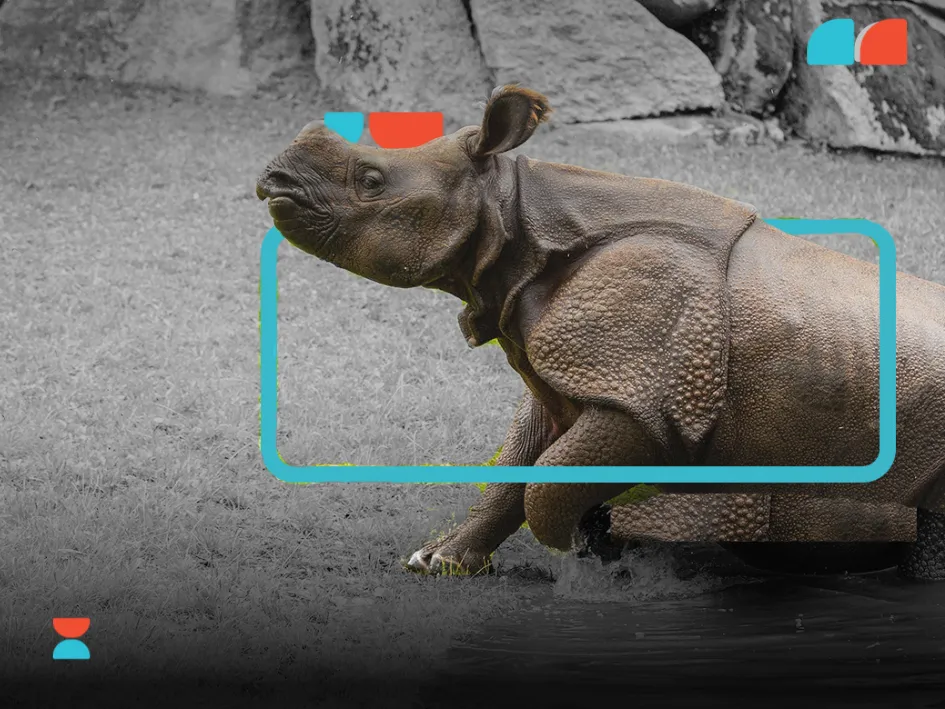Case Study: The Loss of Strategic Intervention and the Death of Javan Rhinos

Indonesia is currently mourning the alarming news of 26 Javan rhinos that have died. This has raised numerous questions from researchers and activists regarding the effectiveness of wildlife conservation management, particularly the roles of Ujung Kulon National Park (TNUK) and the Ministry of Environment and Forestry of the Republic of Indonesia (KLHK RI).
As one of 55 National Parks in Indonesia, TNUK, located in the Sumur and Cimanggu sub-districts of Pandeglang Regency, Banten Province, serves a function based on Article 1 of Law No. 5/1990 as a natural conservation area with an original ecosystem where management is conducted through a zonation system, benefiting research, science, education, cultural support, tourism, and recreation. Moreover, TNUK is one of Indonesia’s oldest national parks and has been recognized as a World Heritage Site protected by UNESCO since 1992 (Indonesia Baik, 2018).
With this status, TNUK is home to a wide variety of endemic and endangered wildlife species that need protection. According to Indonesia Baik (2018), TNUK hosts many rare and highly protected endemic species. This awareness emphasizes the strategic role of national parks in maintaining the stability of flora and fauna.
In the ecological framework, every animal plays a specific role in the ecosystem chain that helps sustain environmental balance. The loss of Javan rhinos can cause a domino effect, influencing other species and the overall health of the ecosystem. Furthermore, the impact of the deaths of 26 Javan rhinos in Ujung Kulon can be analyzed across several aspects, including:
Impact of the Death of 26 Javan Rhinos in Ujung Kulon
-
Biodiversity and Ecosystem
This situation significantly affects the population of a critically limited species, reducing genetic diversity and threatening the long-term sustainability of the species. Additionally, it impacts the ecosystem they inhabit, as rhinos play a vital role in maintaining ecosystem balance, such as dispersing seeds that help preserve plant diversity in their habitat.
-
Economy, Social, and Culture
In addition to serving as a conservation space, TNUK functions as a tourist destination in Pandeglang, Banten. The decline in the Javan rhino population indirectly harms the ecotourism sector, which relies on the attraction of this rare animal. The loss of tourism revenue can negatively impact the local economy and further conservation funding.
-
Science and Education
As part of the national park’s purpose, Javan rhinos are an important subject for conservation and biological research. Their deaths reduce opportunities for scientific studies that could provide valuable insights into preserving other endangered species.
The various losses that have occurred should prompt the government to take serious action—not just by punishing related parties but by transforming the way protected endemic species are managed through strategic interventions. According to Betahita (2023), data from TNUK revealed that the causes of Javan rhino deaths over the years often remain unknown, even after researchers analyze the remains of the rhinos.

Figure 1: The Number of Javan Rhino Deaths Over the Years in Ujung Kulon National Park, Based on Data Received by Betahita, 2023
This fact highlights the need to re-examine the roles and responsibilities of all parties involved. To address this conservation crisis,
A comprehensive cross-sectoral approach is needed:
Strengthening Conservation
Enhancing conservation efforts through habitat protection, disease prevention, and strict population monitoring.
Further Research
Conducting in-depth research to understand the causes of death and develop preventive strategies. The results can be published to raise public awareness.
International Collaboration
Collaborating with global conservation organizations to gain support and resources.
Education and Awareness
Raising public awareness about the importance of Javan rhino conservation and their ecosystem.
This case serves as both a dark reminder and a call to action on the importance of conservation and the protection of endangered species. The absence of strategic intervention within organizations has led to these complex issues. The next question is: How can we ensure that these roles function optimally?
To achieve this, organizations need to revisit their alignment with their vision. By creating more impactful initiatives, organizations are encouraged to reassess how each impact initiative can become a wise decision. Does your organization want to start an impact initiative? Consult with Maxima Impact Consulting and discover solutions tailored to your organization!
